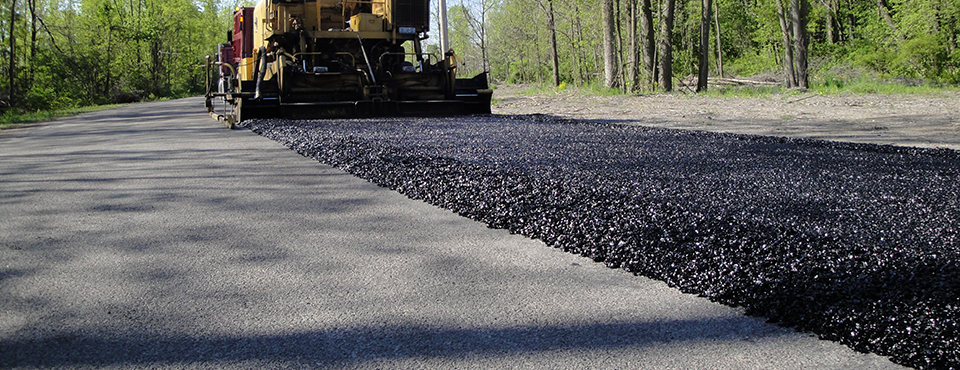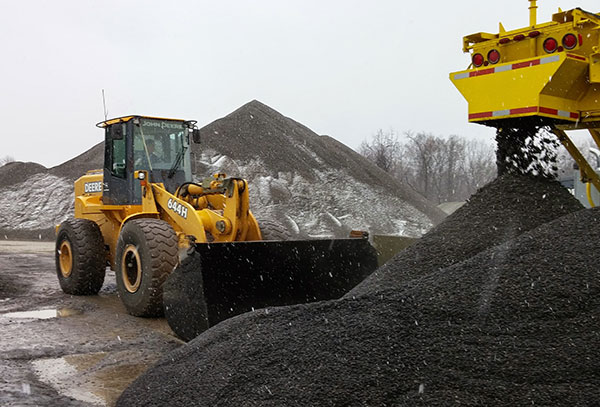Upgrade Your Surface Areas: Cold Mix Asphalt for Effective Asphalt Repair
Upgrade Your Surface Areas: Cold Mix Asphalt for Effective Asphalt Repair
Blog Article
Cold Mix Asphalt: Changing the Way We Build Roads
As the facilities field remains to progress, the application of cool mix asphalt offers an appealing change in roadway building and construction techniques. Its versatility to various climate condition and lasting attributes have actually triggered passion in the construction sector. The cutting-edge residential properties of cold mix asphalt are challenging traditional road-building practices, paving the means for improved performance and longevity. This transformative material is not just reshaping the construction landscape but additionally elevating interesting inquiries regarding its long-lasting impact on framework development (Asphalt Repair).
Advantages of Cold Mix Asphalt
What benefits does chilly mix asphalt deal over traditional warm mix asphalt in roadway building and construction jobs? One key benefit is its capacity to be used in all weather condition conditions, unlike warm mix asphalt which needs specific temperature problems for blending and laying.
Moreover, chilly mix asphalt can be stocked for future use, supplying benefit and cost savings for maintenance projects. Its ease of application, requiring no customized equipment or heating, makes it ideal for quick repair work and patching. Additionally, cool mix asphalt is much more environmentally pleasant as it needs less energy for manufacturing and sends out lower degrees of greenhouse gases contrasted to warm mix asphalt. These advantages combined make chilly mix asphalt a reliable and versatile choice for various road building tasks.

Ecological Advantages
One of the essential environmental benefits of cool mix asphalt is its lower carbon footprint compared to hot mix asphalt. In addition, cold mix asphalt is commonly made utilizing recycled materials such as redeemed asphalt pavement (RAP) and recycled asphalt roof shingles (RAS), more lowering the demand for new raw products and drawing away waste from landfills.
Additionally, making use of chilly mix asphalt can bring about reduced energy usage during building and construction as a result of its capability to be applied using standard tools without the requirement for added heating processes. This not only minimizes gas consumption yet also minimizes air pollution and enhances air top quality in the bordering locations. By choosing cold mix asphalt for roadway jobs, building companies can make a favorable effect on the atmosphere while still ensuring long lasting and top quality road surfaces.
Convenience in Weather Conditions
In road building projects, the adaptability of cool mix asphalt in different climate condition enhances its usefulness and performance. Unlike hot mix asphalt, which requires high temperatures throughout blending and installment, cold mix asphalt can be used in a variety of climate condition. Asphalt Repair. This adaptability makes it a useful alternative for road building and construction in regions with extreme temperatures or unpredictable climate patterns
Cold mix asphalt continues to be practical also in winter, enabling building tasks to continue during winter season when warm mix asphalt may not be a possible option. Its capability to cure and establish without the demand for high temperature levels makes certain that road maintenance and repairs can be executed year-round, reducing disturbances to web traffic flow and reducing general task timelines.
Additionally, cool mix asphalt's durability to dampness makes it appropriate for areas prone to regular rain or high moisture. Its adaptability and toughness allow it to hold up against expansion and tightening brought on by temperature fluctuations, adding to longer-lasting roads that need fewer repair work with time. In general, the adaptability of cool mix asphalt in different climate condition makes it a reliable option for reliable and lasting road building and construction projects.

Cost-Effectiveness and Sustainability
Taking into consideration the economic and ecological impacts of roadway construction materials, exactly how does the cost-effectiveness and sustainability of chilly mix asphalt contrast to conventional choices? Cold mix asphalt supplies an engaging economical and sustainable remedy for roadway building. In terms of cost-effectiveness, cool mix asphalt typically calls for lower production temperature levels, reducing energy consumption and manufacturing prices compared to warm mix asphalt. The capability to be stockpiled for extended periods without hardening likewise reduces waste and permits simpler maintenance and repair work, resulting in total price savings. In addition, making use of chilly mix asphalt can result in decreased transportation expenses as a result of its longer service life and the possibility of being created on-site.
From a sustainability standpoint, cool mix asphalt offers several environmental benefits. Its lower manufacturing temperatures result in reduced greenhouse gas exhausts and energy intake, straightening with efforts to mitigate climate modification. The capacity to reuse existing materials right into chilly mix asphalt contributes to a circular economic climate strategy, reducing the requirement for virgin products and decreasing general environmental impact. In general, the cost-effectiveness and sustainability of cool mix asphalt make it a promising option to typical road building products.
Effect On Roadway Resilience
Roadway sturdiness considerably affects the long-lasting efficiency and upkeep needs of asphalt sidewalks. Cold mix asphalt, with its distinct qualities, has a notable effect on roadway durability. One key element is the capacity of chilly mix asphalt to endure temperature changes without jeopardizing its structural stability. This versatility assists the sidewalk to resist rutting news and cracking triggered by transforming weather, linked here resulting in a longer life span for the road.
Furthermore, the cool mix asphalt's boosted resistance to wetness damage plays an essential duty in keeping roadway longevity. Typical hot mix asphalt is much more at risk to dampness seepage, which can weaken the pavement structure over time. On the other hand, chilly mix asphalt's composition enables it to better withstand water infiltration, lowering the possibility of fractures and various other forms of wear and tear.
Verdict
Finally, cold mix asphalt uses a wide range of advantages for road building and construction, including environmental advantages, adaptability in weather condition conditions, cost-effectiveness, and improved road durability. Its capacity to be utilized year-round and its lasting methods make it a transformative option for producing roadways that are both sturdy and eco-friendly. With its cutting-edge strategy and durable outcomes, cold mix asphalt is revolutionizing the way we construct roadways for an extra sustainable future.
What advantages does cold mix asphalt offer over typical warm mix asphalt in roadway building jobs? In addition, chilly mix asphalt is extra environmentally pleasant as it requires much less energy for production and produces reduced degrees of greenhouse gases compared to hot mix asphalt. Asphalt Repair. Additionally, chilly mix asphalt is often made using recycled products such as recovered asphalt pavement (RAP) and recycled asphalt shingles (RAS), further reducing the demand for new raw products and drawing away waste from land fills
Unlike warm mix asphalt, which calls for high temperatures throughout blending and setup, cool Source mix asphalt can be used in a large variety of climate conditions. In terms of cost-effectiveness, chilly mix asphalt typically calls for reduced production temperature levels, decreasing energy consumption and manufacturing expenses compared to warm mix asphalt.
Report this page